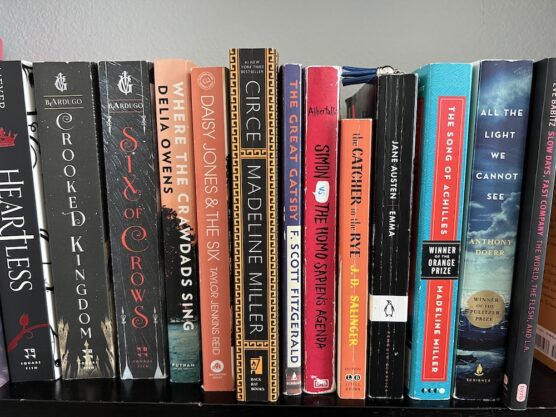By Alan Riquelmy
SACRAMENTO, Calif. (CN) — A bill focusing on what books local school boards could remove from their shelves drew impassioned debate from both sides of the issue at a Wednesday hearing of the state Senate Education Committee.
Supporters of the bill, including State Superintendent of Public Instruction Tony Thurmond, argued Assembly Bill 1078 wouldn’t prohibit a school district from removing a book. However, districts could face consequences — like a monetary fee — if materials are removed for discriminatory reasons.
Opponents of the bill said it would remove local control from school boards and strip them of their power.
Discussed for over an hour, the bill now moves to the state Senate Appropriations Committee.
Assemblyman Corey Jackson, a Moreno Valley Democrat and author of the bill, said the legislation is an attempt to address book bans. Critics of books bans say the practice silences writers and often affects marginalized communities.
“These book bans deny students their right to access,” he added.
The bill, if enacted, would require the state Board of Education to consider how underrepresented groups figure in school textbooks. Also, it would require a two-thirds vote of a local school board to remove a textbook.
Speaking in favor of the bill, Temecula Valley Unified School District teacher Caroline Thomas said her school board chose to remove certain books from her district’s curriculum. Thomas said her board opposed LGBTQ+ books, as well as any mention of former San Francisco Supervisor Harvey Milk — who was gay and ultimately assassinated along with Mayor George Moscone in 1978 — in her district.
“I’ve witnessed the consequences of curriculum denied in our community,” Thomas said.
Speaking at Wednesday’s hearing, Thurmond said he values local control. However, that control does not include the right to threaten and bully students.
“They feel threatened,” Thurmond said of students after visiting Temecula Valley. “They feel attacked. They feel mistreated.”
Opposition to the bill was strong.
Kasia Williams, legislative director of the California Parents Union, said AB 1078 adds a layer of state oversight she likened to micromanagement. Parent Allie Snyder argued the bill nullifies the will of the voter as it strips power from local school boards.
Snyder then detailed what she said were excerpts from the book “This Book is Gay,” which is in her son’s school library.
“This book in my son’s school explains sex acts in explicit detail that targets kids,” Snyder added, claiming parents will have no choice but to remove their children from public schools.
State Senator Rosilicie Ochoa Bogh, a Republican representing parts of San Bernardino, Riverside and Los Angeles counties, said enrollment in state schools is declining. Her constituents tell her the reasons include the economy and cost of living, with education being near the top.
“We focus so much on color of skin, gender, sexuality, versus the content of character,” Ochoa Bogh said, adding moments later: “When anyone expresses concerns, we vilify them.”
Jackson pushed back on the argument that his bill removes local control. Parents still have the right to ensure a school’s curriculum is age-appropriate. However, Jackson added that some districts have voted to restrict certain materials not because of the content of someone’s character, but their sexuality.
“People can all they want to dance around that, but this is a fact,” he said. “Districts have done that and it’s been very recent.”
Thurmond emphasized the state doesn’t force school districts to use a certain book to teach specific subjects. Also, districts aren’t prohibited from removing books. Consequences would be possible when a book is removed in a discriminatory manner.
State Senator Lola Smallwood-Cuevas, a Democrat whose district includes portions of South Los Angeles, Del Rey and other communities, said the conversation is a painful one.
“There is local control and there is a state responsibility,” she said. “I think this is a forward-looking policy.”
Like this:
Like Loading...
Related





 Tweet This
Tweet This Facebook
Facebook Digg This
Digg This Bookmark
Bookmark Stumble
Stumble RSS
RSS


























REAL NAMES ONLY: All posters must use their real individual or business name. This applies equally to Twitter account holders who use a nickname.
0 Comments
You can be the first one to leave a comment.